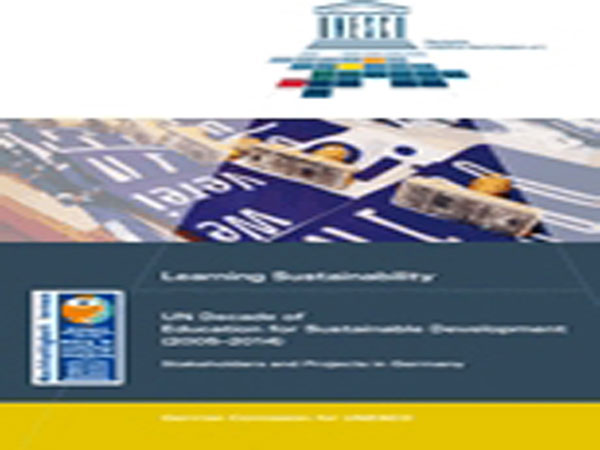



Date:13/06/11
 Last month, UNESCO opened for registration a global online education programme for 16–18 year-old students to learn about sustainability issues and solutions through the internet. While registration was opened on 23 May 2011, the online platform—www.gymp.org—will be fully operational only in September 2011.
Last month, UNESCO opened for registration a global online education programme for 16–18 year-old students to learn about sustainability issues and solutions through the internet. While registration was opened on 23 May 2011, the online platform—www.gymp.org—will be fully operational only in September 2011.
The Young Masters Programme (YMP) on Sustainable Development puts teaching material on the internet for both students and teachers to access free of charge. Students and teachers can retrieve assignments and then discuss their results in virtual classrooms with peers across the globe.
YMP was first initiated by the International Institute for Industrial Environmental Economics (IIIEE), at Lund University in 1999 and has since catered to more than 20 000 students from over 110 countries. Moving to an online platform is thought to allow higher enrolment numbers and also “encourage and stimulate global interaction and collaboration between students and teachers”. To counter digital divides, the web platform has been designed to not “require powerful computers or permanent broadband connections to run the programme”, the YMP leaflet stated. Examples of past YMP work includes a group of students from China’s Gezhi High School who have found a way to harness the energy generated by exercise equipment in parks and residential areas. The group used a generator that can save the energy in a battery pack which can then be used to power LED lights. According to UNESCO, the clean energy produced entails an estimated reduction of carbon dioxide by 66 kg per year for each piece of exercise equipment.
UNESCO puts sustainable learning online
 Last month, UNESCO opened for registration a global online education programme for 16–18 year-old students to learn about sustainability issues and solutions through the internet. While registration was opened on 23 May 2011, the online platform—www.gymp.org—will be fully operational only in September 2011.
Last month, UNESCO opened for registration a global online education programme for 16–18 year-old students to learn about sustainability issues and solutions through the internet. While registration was opened on 23 May 2011, the online platform—www.gymp.org—will be fully operational only in September 2011. The Young Masters Programme (YMP) on Sustainable Development puts teaching material on the internet for both students and teachers to access free of charge. Students and teachers can retrieve assignments and then discuss their results in virtual classrooms with peers across the globe.
YMP was first initiated by the International Institute for Industrial Environmental Economics (IIIEE), at Lund University in 1999 and has since catered to more than 20 000 students from over 110 countries. Moving to an online platform is thought to allow higher enrolment numbers and also “encourage and stimulate global interaction and collaboration between students and teachers”. To counter digital divides, the web platform has been designed to not “require powerful computers or permanent broadband connections to run the programme”, the YMP leaflet stated. Examples of past YMP work includes a group of students from China’s Gezhi High School who have found a way to harness the energy generated by exercise equipment in parks and residential areas. The group used a generator that can save the energy in a battery pack which can then be used to power LED lights. According to UNESCO, the clean energy produced entails an estimated reduction of carbon dioxide by 66 kg per year for each piece of exercise equipment.
Views: 2915
©ictnews.az. All rights reserved.Similar news
- 24% of U.S. Adults have made phone calls on the Internet
- Australia gives incentives for the use of telehealth
- US launches computer programme for poor kids
- UN declares web access as human right
- Facebook growth slows in stalkerbase heartlands
- One Third of Millionaires Use Social Media
- Facebook Seeks Bigger Role in Software for Mobile Apps
- Icann increases web domain suffixes
- IBM launches new social networking platform for enterprises
- Google Notches One Billion Unique Visitors Per Month
- Internet providers cut international channel renting costs by 60%
- Azerbaijan launches standard time on internet
- Icann launches facility to ease DNSSec adoption
- Social network data mining yields worrying results for traditional media





















